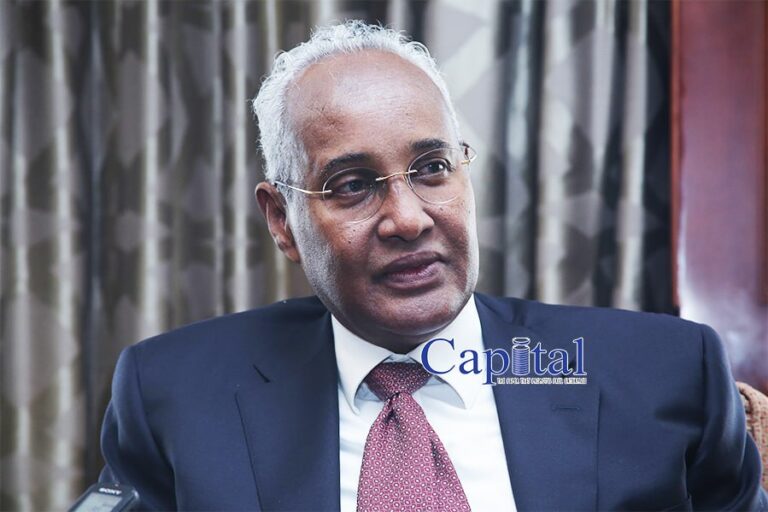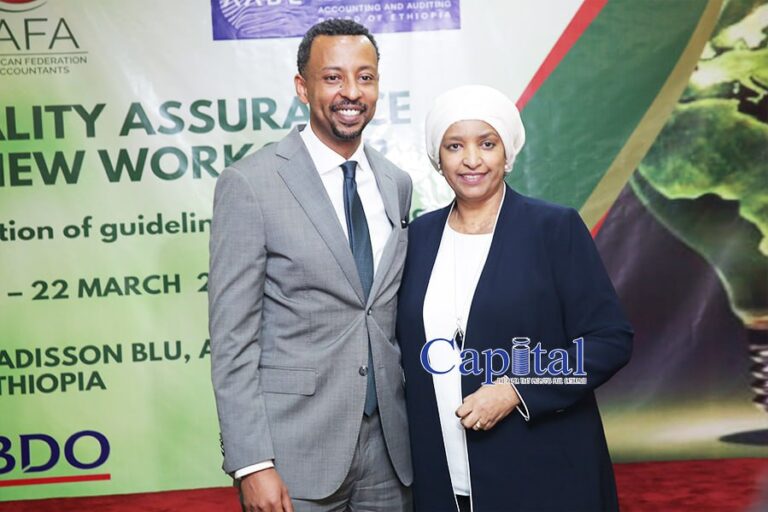Ethiopia intends to import fertilizer via Kenya’s Lamu Port in the near future. A week ago, delegations tasked with assessing the situation were in Kenya. Ethiopia has indicated a strong desire to expand its port destinations beyond Djibouti, which already handles nearly all of its cargo. Even though the idea to use Lamu was proposed years ago, it has not been used up to this point. A portion of import exports has gone to the Mombasa port due to the security situation in the Red Sea and Aden Gulf since November of last year. However, compared to Djibouti, using Kenya’s largest port is more expensive because of its destination.
The team has seen the situation in Mombasa in addition to Lamu, based on the information Capital received from the Ministry of Transport and Logistics (MoTL). State Minister of MoTL Denge Boru stated, “The delegation has visited the port and road conditions up to Moyale, whether or not it is suitable for the operation.” The group will deliver their findings to the logistics committee, he continued. According to the proposal, part of the fertilizer cargo is to be transported through Lamu by the government. The State Minister informed Capital, “We will be using the port very soon.”
According to sources, top ESL officials who were part of the group declined to comment, but the mission, which included logistics specialists from several public agencies, including Ethiopian Shipping and Logistics (ESL), observed the situation there. He informed Capital, “We will disclose when we start the operation.” In addition to managing the majority of import and export cargo, the fertilizer fleet is managed by the state-owned logistics business, ESL. According to the proposal, the government intends to use Berbera Port in Somaliland as a substitute for cargo imports, primarily for the country’s east and southeast. To date, Ethiopia’s closest and most established port location that is also connected to an electric train is Djibouti.
In order to ensure a seamless operation, various paperwork and agreements between the two countries will need to be completed before the service is launched via Lamu.
Due to security concerns in the Red Sea, Ethiopian cargo is now handled through Mombasa despite the obstacles that separate it from Djibouti.
The catalyst for this shift stems from delays experienced by inbound and outgoing cargo at ports in Djibouti, attributed to vessel operators reducing their operations along the Red Sea route. With vessels navigating the Red Sea and Gulf of Aden facing security risks, including attacks by Houthi militants in Yemen, shipping corporations have been compelled to seek alternative routes to ensure the timely and safe delivery of goods.
Despite its higher operational costs compared to Djibouti, Mombasa has emerged as a preferred option for Ethiopian freight due to its relative stability and efficiency.
The Mombasa route has particularly benefited industrial hubs such as Hawassa, Bole Lemi, Debre Berhan, and Adama, where manufacturers rely heavily on timely imports of raw materials and exports of finished goods. By circumventing the delays and security risks associated with the Red Sea route, businesses operating in these industrial parks have been able to maintain steady production levels, contributing to Ethiopia’s economic growth.








